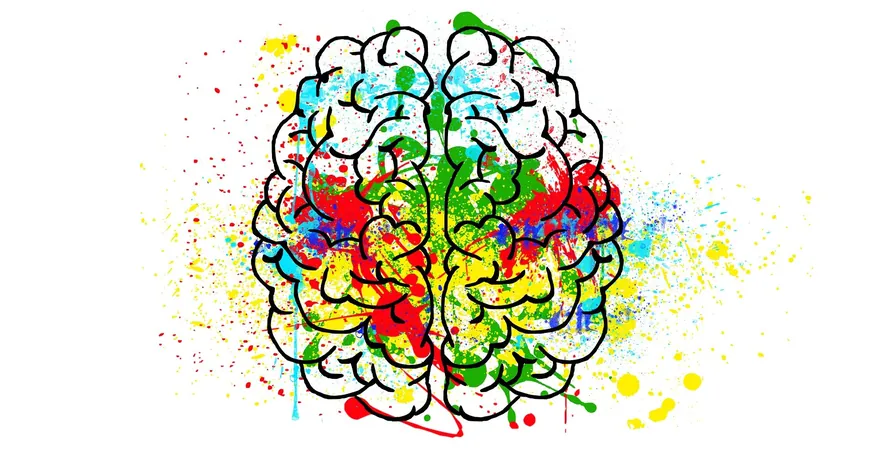
Breakthrough in Brain Science: How Meta-Learning Unlocks Your Motor Skills!
2024-10-28
Author: Jia
Introduction
In a groundbreaking study, researchers at the University of Tsukuba have illuminated the mysteries behind motor learning, showing that our ability to master physical skills is not merely a talent, but a process that can be cultivated throughout our lives.
The Role of the Dorsal Premotor Cortex
While athletes exhibit superior motor learning, the underlying mechanisms for the rapid acquisition of these skills have long eluded scientists. This revolutionary research unveils the role of the dorsal premotor cortex, a region of the brain previously thought to be solely responsible for movement planning.
Meta-Learning Hub
The study reveals that the dorsal premotor cortex functions as a “meta-learning” hub, regulating not only how we learn movements but also how we retain or forget motor memories. Over the past decade, the gaps in understanding these disparate learning speeds among individuals were often attributed to genetic or innate factors. However, this latest research suggests that motor learning may be much more dynamic and adaptable than previously believed.
Research Methodology
By employing advanced techniques like computational modeling and targeted brain stimulation, researchers demonstrated that this brain area is essential for the "learning to learn" process. It uses reward-based reinforcement learning similar to mechanisms found in artificial intelligence, amplifying our understanding of how humans adapt their motor skills.
Comparative Analysis of Brain Regions
The findings lay bare the neural underpinnings of motor learning, which could have significant implications for athletes, rehabilitation professionals, and educators alike. Published in the prestigious Proceedings of the National Academy of Sciences, the study intricately compares the roles of the prefrontal cortex—known for its key role in decision-making—and higher motor areas in facilitating motor skills through meta-learning.
Significance of Transcranial Magnetic Stimulation (TMS)
Intriguingly, when researchers applied transcranial magnetic stimulation (TMS) to inhibit various brain regions, they found that while the prefrontal cortex did not show a noticeable impact on meta-learning, the dorsal premotor cortex was critical. Disruption in this area inhibited the meta-learning related to memory, implying its crucial role in how we manage the retention and forgetting of motor skills.
Implications of the Research
What's even more fascinating is that specific aspects of motor learning remained untouched despite the inhibition of meta-learning processes. This reinforces the idea that while fundamental motor skills can be taught or honed, the intricacies surrounding memory retention concerning these skills are heavily influenced by the tasks and environment.
Conclusion and Future Directions
As the implications of this research ripple into varied fields—from sports training to neuroscience—questions arise: Could enhancing meta-learning lead to better training techniques for athletes? Or could it transform rehabilitation practices for those recovering from motor impairments? One thing is certain—the door to optimizing human potential has been flung wide open, and the secrets of our brains have never been more tantalizing to explore!




 Brasil (PT)
Brasil (PT)
 Canada (EN)
Canada (EN)
 Chile (ES)
Chile (ES)
 España (ES)
España (ES)
 France (FR)
France (FR)
 Hong Kong (EN)
Hong Kong (EN)
 Italia (IT)
Italia (IT)
 日本 (JA)
日本 (JA)
 Magyarország (HU)
Magyarország (HU)
 Norge (NO)
Norge (NO)
 Polska (PL)
Polska (PL)
 Schweiz (DE)
Schweiz (DE)
 Singapore (EN)
Singapore (EN)
 Sverige (SV)
Sverige (SV)
 Suomi (FI)
Suomi (FI)
 Türkiye (TR)
Türkiye (TR)